The Talos Principle is mature without being 'mature'
Warning: Story spoilers below
Croteam is a small, independent studio best known for a series of games called Serious Sam; first-person shooters that harken back to a simpler era of games, where all you needed were big guns, bigger explosions, and headless goons that charge screaming at you full bore while holding two Looney Tunes-sized bombs. These games are rated "M for Mature" in North America by the ESRB for their cartoonishly ludicrous levels of hyperviolence. They're the posterchild for the term 'mindless shooter'. They're… not exactly for kids.
Meanwhile, Croteam's latest game, The Talos Principle, is essentially a 180-degree turn. It's written by Tom Jubert and Jonas Kyratzes, writers known for their work on contemplative games like The Swapper and The Infinite Ocean, respectively. It's rated "Everyone 10+" by the ESRB for "mild violence" - basically, there are a few obstacles you'll come across in your puzzle solving that will 'kill' your robot body, sending you back to the start of the puzzle. Maybe there's a swear word or two in there somewhere. It's incredibly tame in comparison. It's also one of the most mature games I've ever played.

When games are given ratings by each region's particular board of censors, the most obvious measure is whether or not its content is appropriate for children. Do enemies explode in a flash of meaty chunks, or do they simply fall down and disappear? Does its dialog remind you of a Saturday morning cartoon or a prime-time expletive-laden procedural? The answer to these questions determine which rating gets slapped on the box, so buyers are aware of how appropriate it is for certain age groups.
When looked at through this lens, The Talos Principle seems fairly benign. You can't really die, there aren't any real enemies, there's no sexual content or inappropriate dialog. But Talos' maturity doesn't come from blood, or bullets, or breasts. Instead, it comes from what The Talos Principle asks of the player; that is, it wants you to examine the very nature of what it means to be human. And that's not a topic many adults want to attempt to grasp, let alone children.
You don't really know this when you first start the game up, though. You find yourself in some Grecian ruins, a magnificent voice bellowing from the ether. He's Elohim, he claims, creator of this land, and he has created it for you. You are free to explore the world, solve its puzzles at your leisure, but you are not allowed to ascend the tower, and to defy him will surely lead to your death.

You know little else at this point. In fact, you don't even discover you’re a robot until you access the first computer terminal and see your metal hands clacking away at the keyboard. But as you play and interact with other terminals that you find, you discover more clues that start to piece together the mystery of where you are, what your purpose is. These terminals, you learn, house an immense wealth of human knowledge and experience, from news reports, to the writings of philosophers like Immanuel Kant, to blogs, forum posts, and Jeff Goldblum jokes.
Sign up to the 12DOVE Newsletter
Weekly digests, tales from the communities you love, and more
You learn that the human race died off a long time ago thanks to a terrible plague - Was it hundreds of years ago? Thousands? - and an institute of scientists were working to preserve humanity by researching a way to transfer consciousness and knowledge into a robotic body. The puzzles you're solving are actually tests created by the institute to instill a sense of cognitive reasoning and logical deduction in the artificial intelligence they created. And all the while, a 'snake' inside these computer terminals continues to ask you questions - Who are you? How do you know you're human? What does that even mean? - to get you to doubt your own, deeply rooted beliefs.
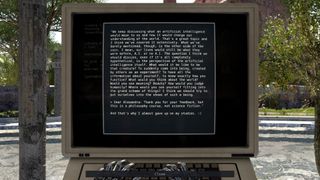
It's incredibly heavy stuff for a video game to ask a player to deal with, but The Talos Principle is paced in such a way that it encourages you to take the time to really think about these existential quandaries. The puzzles are incredibly well-designed, forcing you to consistently think outside the box as you guide laser beams to gate-opening contact points, or move boxes around to enter previously inaccessible areas. But there's also a tranquility, a quiet, to solving these puzzles that allows you time to ruminate on the latest developments in The Talos Principle's head-spinning narrative.
There's a lot to take in, especially if many of the concepts it presents are foreign to you. It explores the nature and importance of religion, couching its narrative in the trappings of the Judeo-Christian story of Adam and Eve, though this time, the forbidden fruit isn't an apple, but the potential knowledge that comes from ascending the tower. There's the story of Talos itself - a bronze statue given life in Greek mythology. There's also a heaping helping of transhumanism inspired by the stories of Isaac Asimov. You should also probably know who Jeff Goldblum is.
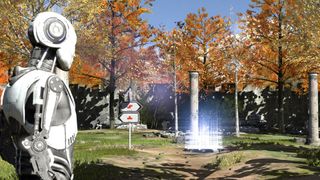
Some of these concepts are more immediately obvious than others, and The Talos Principle does a great job of giving you a run-down of everything you need to understand its greater themes by providing historical texts through its computer terminals. However, it's up to you to piece together why this particular paragraph from Kant's writing is relevant to your current predicament. Everything in The Talos Principle has a purpose, and while it's possible there might be a few too many puzzles, narratively, nothing is wasted.
The Talos Principle doesn't want to spoon-feed you the answers. It's why there are multiple endings, why its hub world hides dozens of secrets, why your dialog with the ghost in the machine can take wildly different forms based on your responses. The Talos Principle expects a level of emotional and intellectual maturity from you that many M-rated games don't, and it wants you to make your own discoveries, come to your own conclusions, find your own 'eureka' moment.

Maturity isn't just about finally getting your driver's license, or being able to buy alcohol. It's about being able to reflect and ask yourself difficult questions, even after knowing that the answers to those questions are difficult to take, if they exist at all. It's why, after a career of making bloody, action-packed shooters for over a decade, that Croteam's calm, introspective puzzle game about what it means to be human can be one of the most mature games ever made.



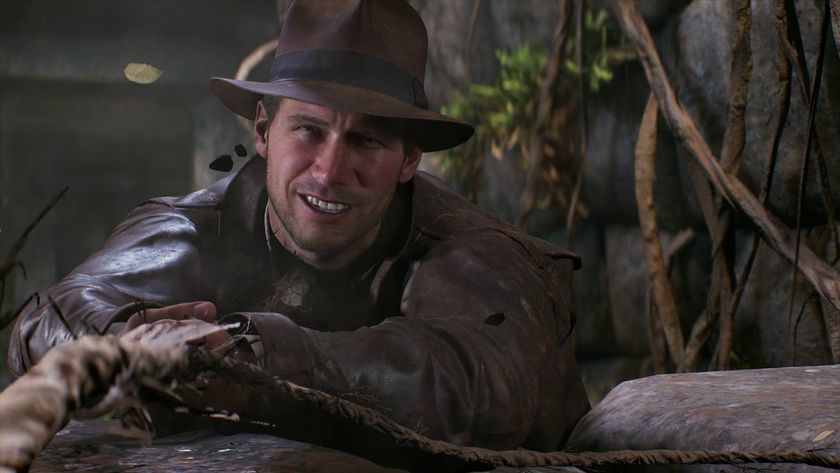
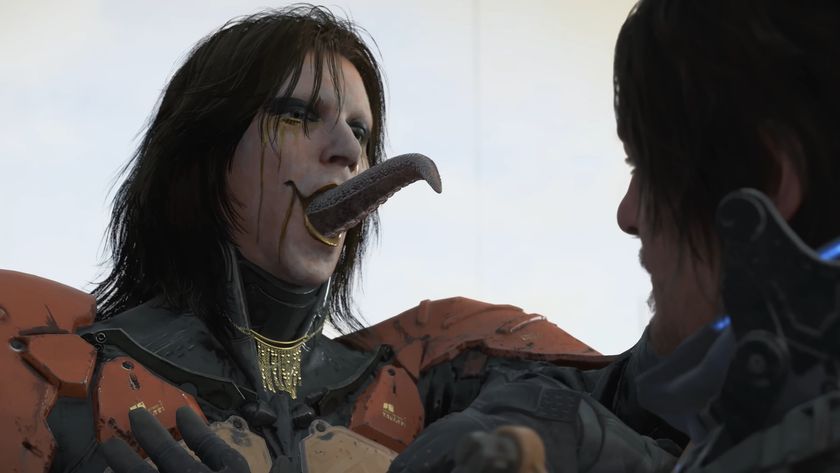
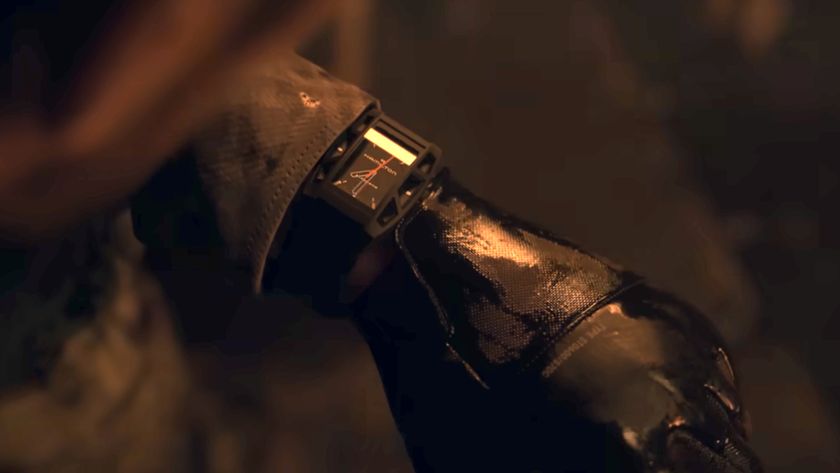







Intergalactic: The Heretic Prophet is "a game about faith and religion," which Neil Druckmann jokes will surely get less hate than The Last of Us 2

The Last of Us creator Neil Druckmann says Intergalactic: The Heretic Prophet will also be about "being lonely," as if his zombie apocalypse wasn’t isolating enough: "I really want you to be lost"




